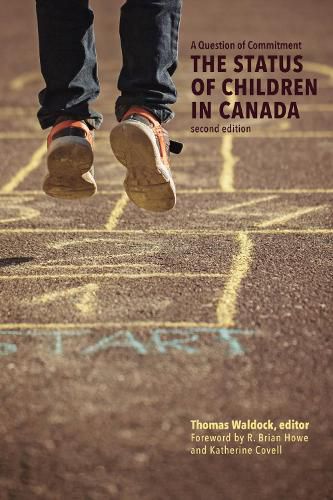Readings Newsletter
Become a Readings Member to make your shopping experience even easier.
Sign in or sign up for free!
You’re not far away from qualifying for FREE standard shipping within Australia
You’ve qualified for FREE standard shipping within Australia
The cart is loading…






With the adoption of the United Nations Convention on the Rights of the Child (1989), commentators began to situate the evolution of the status of children within the context of the
property to persons
trajectory that other human rights stories had followed. In the first edition of A Question of Commitment, editors R. Brian Howe and Katherine Covell provided a template of analysis for understanding this evolution. They identified three overlapping stages of development as children transitioned from being regarded as objects to subjects in their own right: social laissez-faire, paternalistic protection, and children’s rights. In the social laissez-faire stage, children are regarded as objects, and largely as the property of parents. In the paternalistic protection stage, children are seen as vulnerable and in need of protection. The children’s rights stage lays emphasis on children as rights-bearers, as individuals in their own right with entitlements. In this second edition, new essays assess the extent to which children’s rights have been incorporated into their respective areas of policy and law. The authors draw conclusions about what the situation reveals about the status of children in Canada. Overall, many challenges remain on the pathway to full recognition and citizenship.
$9.00 standard shipping within Australia
FREE standard shipping within Australia for orders over $100.00
Express & International shipping calculated at checkout
With the adoption of the United Nations Convention on the Rights of the Child (1989), commentators began to situate the evolution of the status of children within the context of the
property to persons
trajectory that other human rights stories had followed. In the first edition of A Question of Commitment, editors R. Brian Howe and Katherine Covell provided a template of analysis for understanding this evolution. They identified three overlapping stages of development as children transitioned from being regarded as objects to subjects in their own right: social laissez-faire, paternalistic protection, and children’s rights. In the social laissez-faire stage, children are regarded as objects, and largely as the property of parents. In the paternalistic protection stage, children are seen as vulnerable and in need of protection. The children’s rights stage lays emphasis on children as rights-bearers, as individuals in their own right with entitlements. In this second edition, new essays assess the extent to which children’s rights have been incorporated into their respective areas of policy and law. The authors draw conclusions about what the situation reveals about the status of children in Canada. Overall, many challenges remain on the pathway to full recognition and citizenship.